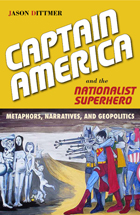Climate Bridge: An International Perspective on How to Enact Climate Action at the Government Public Interface
Rutgers University Press, 2025
eISBN: 978-1-9788-3764-5 | Paper: 978-1-9788-3762-1 | Cloth: 978-1-9788-3763-8
See other books on: City Planning & Urban Development | Environmental Policy | Global Warming & Climate Change | International Perspective | Oberg, Angela
See other titles from Rutgers University Press
eISBN: 978-1-9788-3764-5 | Paper: 978-1-9788-3762-1 | Cloth: 978-1-9788-3763-8
ABOUT THIS BOOK | AUTHOR BIOGRAPHY | TOC
ABOUT THIS BOOK
Climate change is creating new challenges for spatial and environmental planning on both sides of the Atlantic. Planning and policy must balance moderating climate change impact from rising temperatures, extreme precipitation, and sea level rise with social equity and environmental justice. Climate Bridge compares New Jersey and the German Ruhr region to build an international perspective on how to enact climate action at the government-public interface. The book grew from fifteen years of collaboration between scholars in New Jersey and Germany through summer programs, a landscape architecture design studio, internships for Rutgers students, and joint publications. Notably, settlement patterns and brownfield issues reveal similarities between the underserved in both regions. The first section, “Tools and Process,” compares international environmental planning approaches and outlines different approaches to common problems. “Uncertainty and Space” presents case studies that highlight adaptation strategies for uncertainties caused by climate change. Finally, “Place and Connectedness” reminds us of our dependence on ecological systems for physical, mental, and emotional well-being. Contributors to this landmark volume include planners, designers, scholars, public administrators, and decision-makers on both sides of the Atlantic. Together, the chapters bring interdisciplinary approaches and diverse perspectives to the environmental, economic, political, and social dimensions of planning and design in the context of climate change.
See other books on: City Planning & Urban Development | Environmental Policy | Global Warming & Climate Change | International Perspective | Oberg, Angela
See other titles from Rutgers University Press












